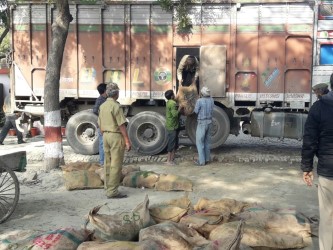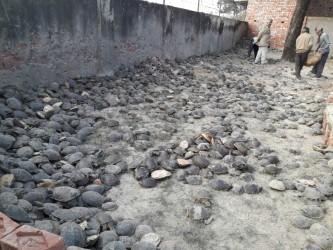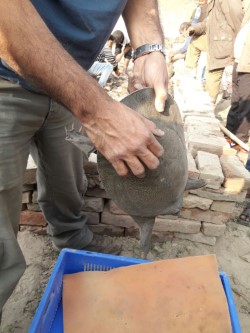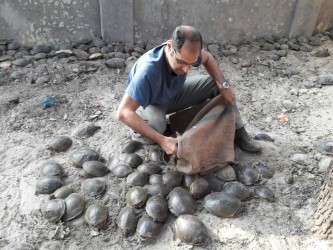6,325 Wild Turtles Confiscated in India
by Howard Goldstein


On 10 January 2017, the Special Task Force and Forestry Department in Lucknow, Uttar Pradesh, India confiscated one of the largest illegal turtle seizures in India when it intercepted 6,325 river turtles. Weighing 4.5 tons, the huge consignment consisted of two species of native chelonians with 6,323 Indian Flapshell Turtles (Lissemys punctata) and two IUCN listed Vulnerable Indian Softshell Turtles (Nilssonia gangetica). Upon the seizure of these animals, the Turtle Survival Alliance was called in to help identify, sort, triage, and ultimately release these animals back into the wild.



The animals had been packed into 140 jute gunny sacks and were being transported by truck when the bust was made. Like so many illegally poached chelonians in Asia, these turtles were destined for the food markets in Kolkata and Southeast Asia. Interestingly, both the sacks and the plastrons of the turtles were marked—the softshells’ with a person’s name—and may have been a way for the distributors to identify and pay each poacher based on the number of animals sent. Large scale turtle poaching is tragically an all too common occurrence, with the current turtle survival crisis being largely driven by the insatiable demand by Chinese and Southeast Asian food markets, as well as by the pet trade. India is a major chelonian biodiversity hotspot with nearly 30 species of turtles and tortoises, of which 40% are endangered.
The TSA team assisted in the husbandry of the captives and aided in designing temporary holding enclosures for triage. One of the most common and difficult problems after a large confiscation is adequately housing and treating so many animals in a very short amount of time. This is usually compounded by the animals’ having been kept by the poachers in deplorable conditions without food or water since the time of their capture. The vast majority of the 6,325 turtles had been kept under less than optimal conditions and were compromised due to lack of food and water for over two months, but thanks to the efforts of TSA and the Indian authorities, the mortality rate was extremely low.
After initial triage, the animals were returned to the wild. A systematic approach was taken to relocate these animals back into their natural habitats, with four different release teams returning the turtles to rivers and ponds.
Thanks to the partnership of TSA and the Uttar Pradesh authorities, these turtles have been given a new lease on life. The confiscation and safe release of such an enormous poaching seizure is a great success story and demonstrates the crucial positive impacts of cooperation amongst government agencies and independent conservation organizations such as TSA in the fight to save the world’s wild turtles. 
